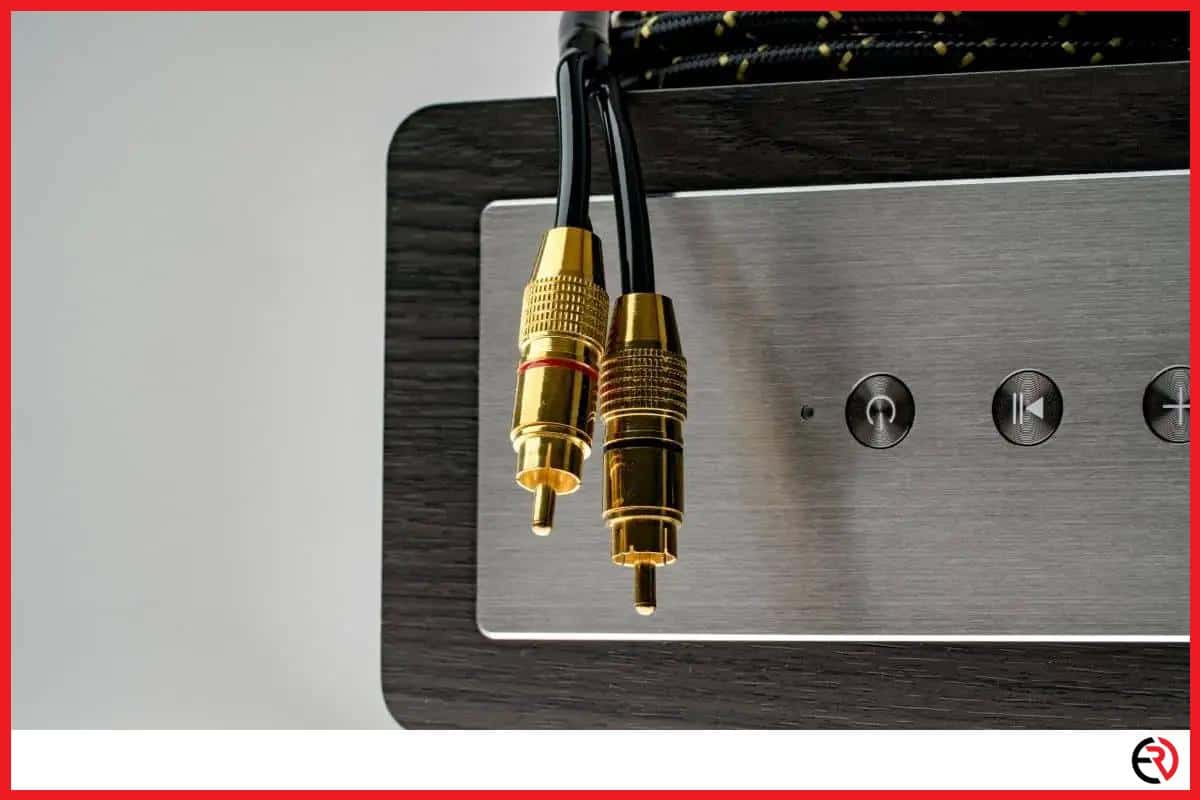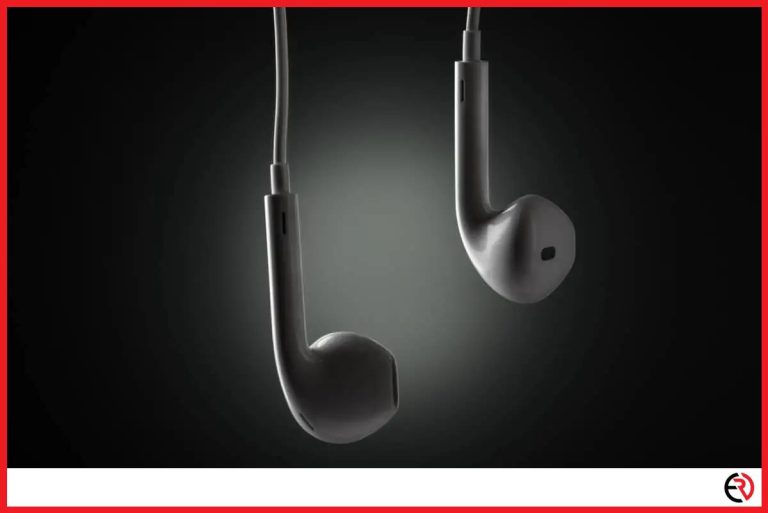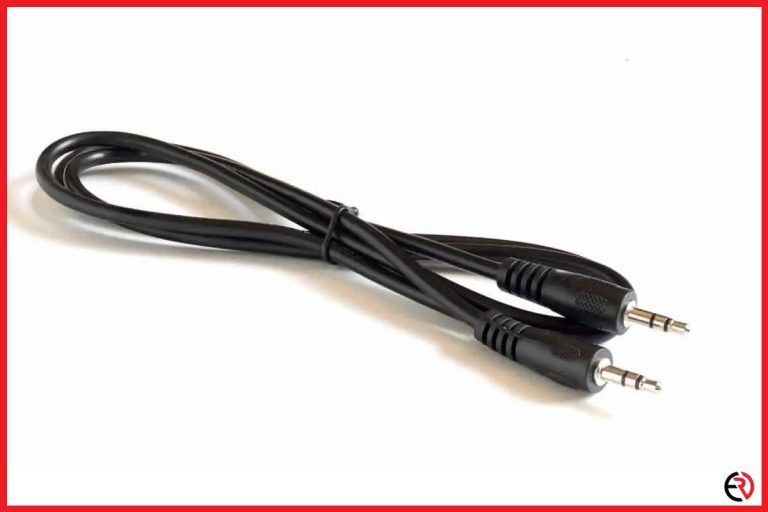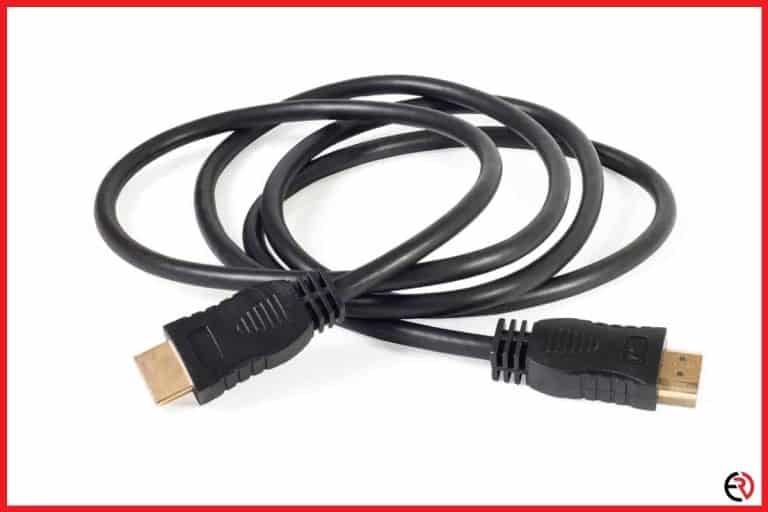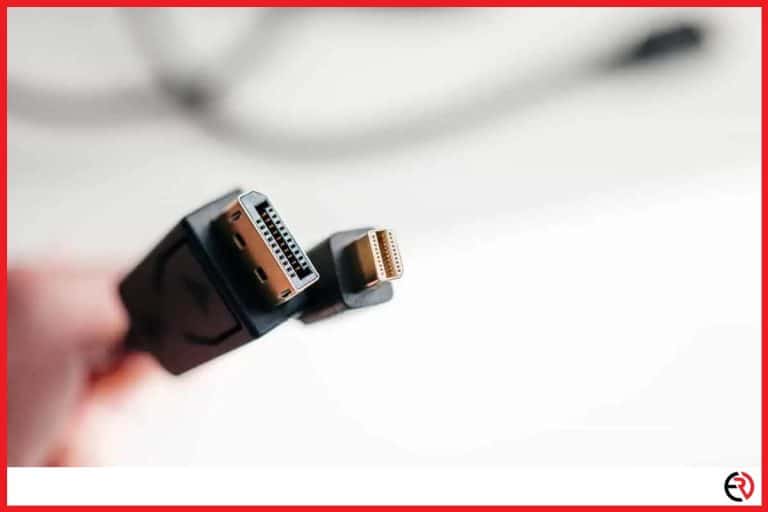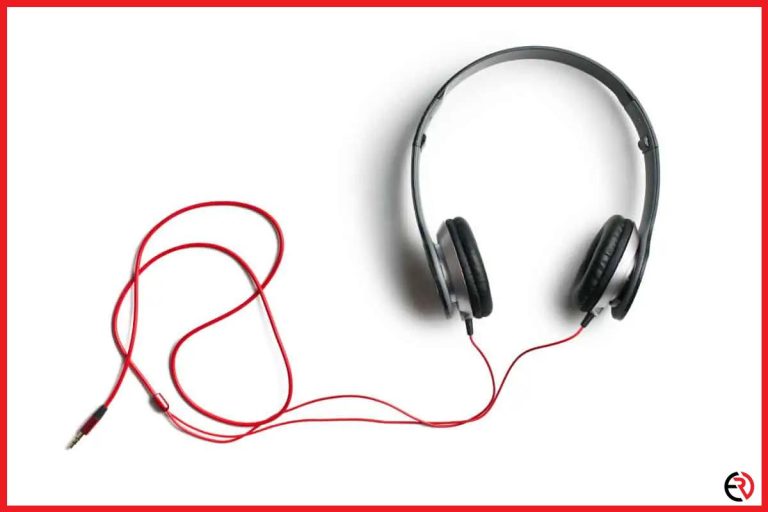Which Cables Are Best for Audio? (A Complete Guide)
This post may contain affiliate links which means that, if you choose to make a purchase, I may earn a small commission at no extra cost to you.
Cables may be irritating, but they are an absolute necessity when it comes to listening to music. They make recording and listening to music a flawless experience, with little to no loss in detail. There are several cables in the market, which is often confusing for someone who cannot distinguish between analog and digital, let alone the subcategories within them. Therefore I have put together this guide to help you understand cables and how you can pick the right one.
There are no best audio cables per se. It depends on how they are built and the wire quality. You should consider three main properties when choosing a cable. They are capacitance, inductance, and resistance. Wire performance also depends on the environment, like extremely high and cold temperatures.
I have also prepared a list of the top five audio cables, alongside a detailed FAQ section where you will learn how to buy audio cables. Let’s get started.
| Cables | AudioQuest Rocket 11 | Chord Clearway | QED Reference XT40i | Atlas Equator 2.0 | QED XT25 |
| Price | Check Price on Amazon | Check Price on Amazon | Check Price on Amazon | Check Price on Amazon | Check Price on Amazon |
| Length | 8 ft | 3.2 ft | 6.5 ft | 9.8 ft | 6.5 ft |
AudioQuest Rocket 11
The AudioQuest Rocket 11 is the best budget cable that can give your speakers a new life. It’s super flexible around tight corners and can reach your subwoofers and speakers without incurring damage. The labels make them easier to use, especially if you are setting up the speakers for the first time and are not accustomed to such cables.
The Rocket 11 is available in both single-wired and bi-wired configurations and uses semi-solid true-concentric conductors with long-grain copper to optimize audio performance. It also minimizes interference that might otherwise degrade the audio quality.
There is a significant difference the moment you plug the cables into your system. The sound coming out of the speakers was not only clear and detailed but the controlled highs and lows left me riveted in my seat. I repeated the experiment with several song genres, and the wires made the speakers outperform themselves every time.
I was able to hear each of the musical instruments distinctly with precise timing. It was too good to be true, so I replaced the wires with another brand, and oddly enough, the quality dropped. Never have I imagined that cables could have such an impact on the overall music quality.
The AudioQuest Rocket 11 is one of the best cables for every audiophile out there. It’s a bit on the expensive side, but the audio quality you get in return is well worth the extra buck.
Pros
- Offers clean and precise sound
- Quite flexible and able to form weird angles
- Compatible across several devices
Cons
- No disadvantages as such
Chord Clearway
Chord Clearway has not always been the best when it comes to cables, but over the past few years, they have significantly improved their production quality. The brand produces one of the cheapest cables on the market, so there is little expectation to begin with. However, I was genuinely impressed by the overall audio during testing.
One of the best cables in the company’s lineup was the Rumor, introduced back in 1996. Over the years, the company has perfected its design. Previously they used Teflon dielectric material and later substituted it with Taylon until it became too expensive to continue production. They finally settled on XLPE, a type of cross-linked polythene which was reasonably priced and was of great quality.
The wire they use is a silver-plated high purity copper conductor enclosed in a white PVC layer. It is also twisted to further reduce signal interference making the speakers perform remarkably during my testing period.
The musically cohesive audio quality is dynamic, crisp, and packed with a lot of punch. It performs reliably well at lower volumes and falters slightly in the extremes, which is somewhat anticipated at this price range.
Overall, the Chord Clearway cables are exactly what you pay for. They are well balanced and manage to play every kind of music you throw at them with relative ease. From classical to EDM, Chrome Company performed better than expected.
Pros
- Lively audio quality
- Easy to understand design and slightly flexible
Cons
- Better alternatives
- Lacks crispness
QED Reference XT40i
Audiophiles aside, most people are not keen on spending a chunk of money on cables and they are justified. Unless you are a music aficionado, you will not notice the subtle change in audio quality as a result of the wires. However, the QED Reference XT40i is an exception, and the audio quality produced as a result of it is unmistakable.
QED is almost 50 years old and was the first to introduce a new technology that increases the space inside the cables, setting the conductors apart quite a bit. This little trick halves dissipation and capacitance characteristics within the cable, thereby improving the auditory accuracy by a significant margin. So technically, you can run longer cables without incurring any auditory penalties in the long run.
The sheet amount of auditory information passing through the cable is mind-boggling. It expresses each note and beat of a song to the closest detail. There is no auditor bleeding, stutters, crackling, or anything else. The XT40i significantly improves the audio quality, even visible to the untrained eye.
I own a pair of Klipsch speakers and the audio quality before and after plugging the cables is starkly different. The accuracy with which the speaker expresses the sound is simply astonishing. It’s one of the best budget cables that do not compromise on the overall audio quality.
Pros
- Provides superior audio clarity
- Best in this price range
- Precise beats
Cons
- Not best for solo audio performances and monologues
Atlas Equator 2.0 2018
The Atlas Equator 2.0 is the cheapest cable you can get in the market that does not choke the life out of your music system. The most unique thing about the Atlas is its multi-core construction which grants it a sturdy finish and helps it get past corners with no issue at all.
The conductors in the Atlas are identical and they also use oxygen-free copper (OFC) conductors for better audio quality. Combined with an increased purity of copper wires, the OFC technology truly makes for world-class sound given, especially at this price range. The company has been using this technology since the 2014 version and the overall cleaner audio quality proves it works.
I tested lots of different music using the wires and the results have been exemplary so far. The audio quality is rich and very detailed, down to the last note executed by each instrument. The previous cables almost added a flat tone to most of my music. However, with Equator 2.0, I am getting the perfect beats like never before.
The bass hits are well-rounded and lack any jarring effects. The same goes for the treble, which is impactful and smooth without appearing broken to the ears. The true dynamic of the music is not visible until you get rid of the initial spikes by letting the cable run for one to two nights. The exposure seasons the wires and smoothes out the rough edges offering better hearing sessions in the future.
The Atlas is one of the cheaper ones on the list and is the perfect affordable upgrade to your music system, should you choose to buy it.
Pros
- Flexible exterior
- Well built and properly balanced
- Detailed audio
Cons
- Way better alternatives at a slightly higher price range.
QED XT25
The goal of audio cables is to draw out your speakers’ maximum potential, and the QED XT25 is one of the best at achieving that feat. The cable also benefits from one of QED’s oldest yet valuable features, the X-Tube Technology.
Wires using this tech have a long hollow tube running through the center of the main cable. This prevents the copper wires from coming too close together, thereby improving the quality even further. QED claims the XT25 to have low DC resistance and the entirety of the low-loss dielectric copper is oxygen-free, which further aids in their crusade to create the perfect cable in the entire industry.
The thing that shocked me the most during testing was the vastness of the airy bursts of audio my seekers were dishing out once connected to the cables. The sheer amount of information these cables could carry is surprisingly enormous.
Each musical instrument within the given music/movie is expressed in detail, with each reverb hitting the notes at the right time. I have not come across any other cables capable of replicating the accuracy shown in the XT25.
The QED brings out the best in your speakers and does so at a reasonable price. It highlights the texture in any kind of music you manage to throw at it. As a result, I highly recommend you get one if you are not a technical person and are intent on setting up a well-rounded music system relatively quickly.
Pros
- Best-in-class audio clarity
- Great dynamics
- In-depth music like never before
Cons
- No disadvantages other than cheaper alternatives with slightly less audio quality
FAQ
What to look for in the best audio cables?
Signal loss is evident in cables that have a significant amount of electronic resistance, especially when the frequency causes the resistance to change even further. Therefore, the low impedance is a must-have quality in most good-quality audio cables.
Setting aside the physics of it all, a higher impedance limits the total power passing through speakers and headphones, and this resistance increases with a higher frequency. So a higher frequency means additional data loss. This is the reason why most cables do their best to minimize impedance.
What factors do not affect cable quality?
There are two main factors that affect cable quality. They are gold plating and insulation and none of them have any profound effect on the overall audio quality, especially in home environments that are meant for personal usage.
The reason why cable manufacturers make a big deal about gold plating is that copper and silver oxidize in the air. The cables would not last very long if they were not constantly cleaned. A layer of gold or zinc prevents oxidation, thereby greatly extending the lifetime of the cable. However, paying extra for the gold is usually not worth it.
Another common misconception is about shielding from electromagnetic waves. However, it’s true that electromagnetic radiation can cause issues, especially when you are dealing with high-speed data. However, it’s not an issue when the wire length is relatively short, like from your pocket to the ears, or between your speakers and subwoofers.
Should you buy expensive audio cables?
All you need are cables that have low capacitance, resistance, and inductance and the cheapest of calves have all of these qualities.
Provided that you know where to look, almost all audio cables have these qualities and the only differentiating factor is the overall build quality. Ideally speaking, 12-14 gauge wires are best for long-distance tasks, as long as the speakers have a low impedance (4-6 ohms). Speakers with a higher impedance (up to 8 ohms) will require 16 gauge wires that have a working distance of just below 50 feet.
How much should you spend on cables?
It depends on the user. While some argue that expensive cables do not affect the overall music quality, others proclaim to have experienced a significant auditory enhancement when using them. But costly does tend to shine when it comes to longevity.
The effort that goes into crafting and soldering expensive cables is usually higher compared to their cheaper counterparts. As a result, they tend to last longer and some argue that they even sound better, and whether the latter is true or not is up for debate.
I would suggest buying cables based on your usage. If you have to pass the cables around tricky corners and do not have the time to clean your room frequently, then getting an expensive set of cables is better.
The same applies if you are a musician and have to travel a lot. The frequent plugging and unplugging of the wires can wear them out quickly, so buying better quality ones ensures they last longer and possibly sound better during prolonged sessions.
Conclusion
Picking a suitable cable is never easy, especially when there are so many options to choose from. Fortunately for you, calves are incredibly cheap, and I would suggest you try them out before settling on a particular brand. You’ll never know which one is perfect for your needs unless you have tried them out, like guitar strings. Although my list helps narrow the list down to five cables, do your own research and if you do come across better alternatives, do not forget to mention them in the comments below.

